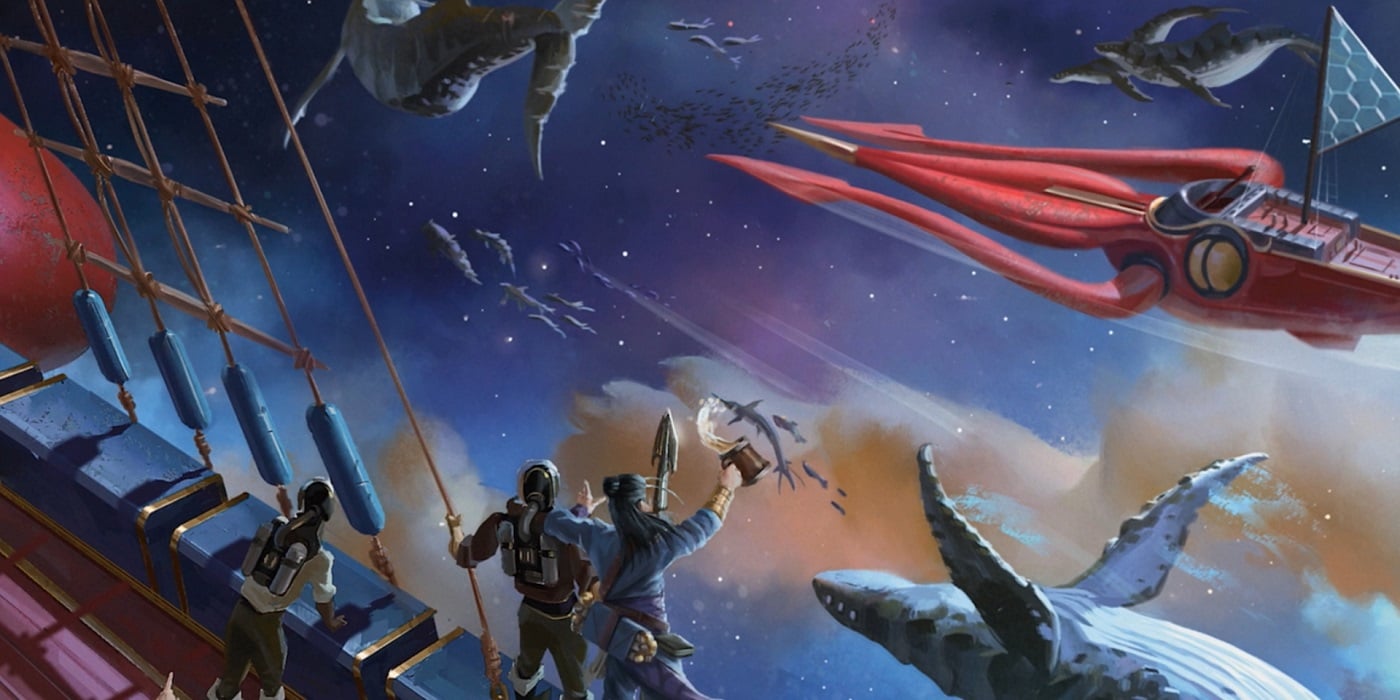Op-Ed: Don’t Screw Over Freelancers – Ever

The Jamison Stone & Satine Phoenix reveal came courtesy of freelancers, the next generation of our hobbyists and creators.
One of the biggest TTRPG scandals of 2022 involves two celebrities and allegations of misconduct. The couple hired several freelancers for various purposes like tattoo art and writing, etc. In case you’re not aware, the two celebrities in question are Jamison Stone and Satine Phoenix. The allegations themselves are covered fairly comprehensively elsewhere, so this article is not, explicitly, about Jamison and Satine. Instead, this article is about the conversation around how to treat freelancers themselves.
Freelance is Where New Creators Get Their Start
I got my start in the tabletop RPG world as a freelancer over 22 years ago. I did some work for Knights of the Dinner Table magazine, Atlas Games, and Wizards of the Coast, just to name a few. Freelancing helped me pay a few bills and — most importantly — helped me get my foot in the door of the industry.
I tried very hard to never forget where I came from. Later on, I was hiring a lot of freelancers to work on projects that I was managing, including the Warhammer 40,000 roleplay lines. I tried to put myself in their shoes and I feel, overall, that I did pretty well in making sure the freelancers I worked with were paid on time and given proper credit for their work.
Honestly, freelance work for tabletop RPGs doesn’t pay well. The standard rate was $.05/word for almost two decades, and I think it’s only crept up slightly since then. Keep in mind that writing in other mediums typically pays 5 to 10 times as much! Most freelancers don’t work on RPGs for the money… they do it because they love it. to be clear, I’m 100% in favor of freelancers earning a living wage for their effort. I’m pointing out that, in my experience, the pay is generally low.
The expectations of a freelancer are few. A freelancer should generally expect to receive:
- The agreed-upon payment.
- A copy of the work (if feasible, most of the time this is expected for printed RPG products rather than digital work or art)
- Credit in the finished work (and their name should be spelled correctly!)
The Myth of “Exposure”
Some of the allegations about Jamison and Satine involve promises of promotion and access to celebrity projects. This concept is often called “exposure,” and it is often dangled as an incentive (or, more rarely, as the entire compensation) for freelancers. The truth is that “exposure,” even if it is couched as promotion, marketing, etc., is something that is mercurial at best and difficult to quantify as a benefit. If I were a freelancer, for example, and a big outlet like Critical Role offered to help promote my work, that could be a big benefit. However, I would have no guarantee that the client would promote me in an effective manner (note that I am NOT accusing Critical Role of having poor marketing), nor would I have any assurance that the promotion would actually help me get bigger and better gigs in the future.
Exposure, simply put, is bullshit. Freelancers get paid, they get a copy of what they worked on, and they get proper credit. Dangling “promotion” as a reward is simply so much frippery. Nice if it works, but absolutely nothing you can count on.
In my experience, most issues and concerns with freelancers can be handled with good communication. Regularly checking in with freelancers is a great way to head off problems at the pass. Honestly, as a freelancer myself, nothing makes me worry more about a project than when there are long periods of silence from a client.
Predators & Prey
Something that isn’t discussed much is that freelancing is inherently somewhat predatory. As a freelancer, you’re at the mercy of the client. The contract becomes your one piece of leverage, but most freelancers can’t afford to take the client to court in the case of the client being a bad actor. It can be scary being a freelancer and realizing that your livelihood is entirely dependent on people not being assholes.
The way that people treat freelancers should be viewed as the way you treat anyone in the service industry, and they should be judged accordingly. Yell at waitstaff? You’re a flaming asshole. Bully a freelancer you hired to give you a tattoo? Just as reprehensible.
Freelancers are the Future; Treat Them Well and Let Them Lead the Way
If you cultivate a freelancer who works for you, they can turn into colleagues, who then turn into teammates. I know this is true for a fact. Freelancers I have hired in the past are now line developers, marketers, and content managers for other tabletop RPG companies. They’re part of my own professional network, and I’m part of theirs. To treat a freelancer like crap is to slam the door on any future interactions. I’m not here to say that every freelancer is a great person you’ll want to stay in touch with… but there are plenty of freelancers who have become important people in the industry over time.
It is important to remember that freelancing is how many people start out becoming professionals in the tabletop RPG world. This means that freelancers often represent the future of our hobby. They’re the ones who will be designing the games for the next ten, twenty, or thirty years. They’re the ones who will remember how they were treated, and that will inform how they treat any freelancers they hire, and so on.
Don’t screw over the next generation of creatives that power the hobby we all love. If you do, then you deserve to live with the consequences. As for me, I’ll be excited to see what lies ahead. And, I’ll be continuing to cheer on those who remember how to treat freelancers well.





